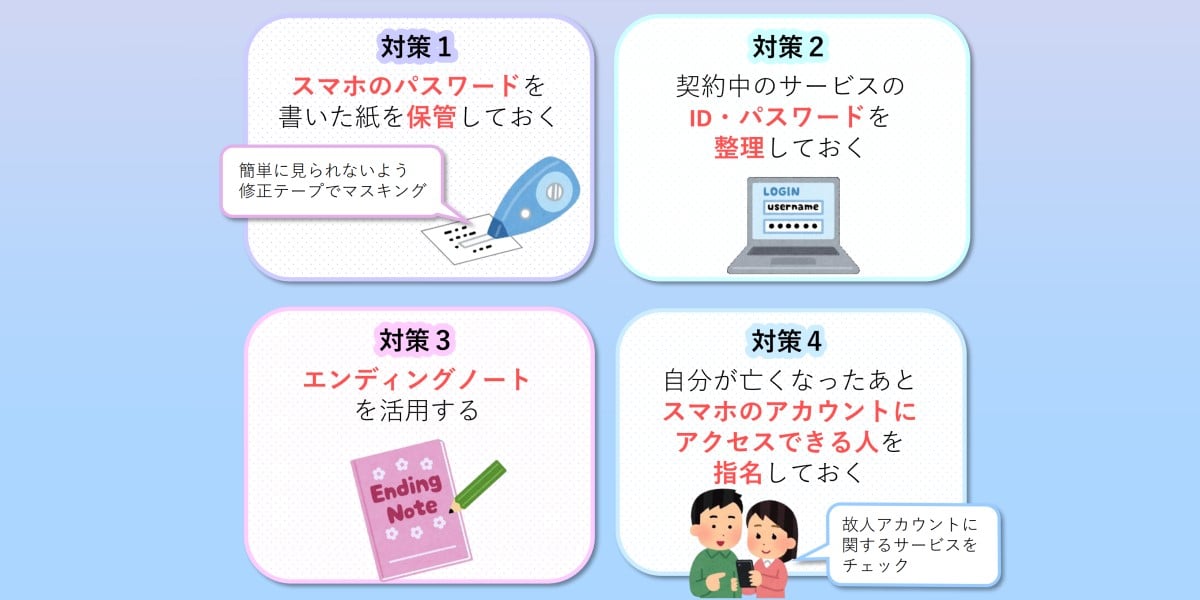- cross-posted to:
- technology@hilariouschaos.com
- cross-posted to:
- technology@hilariouschaos.com
Japan’s National Consumer Affairs Center on Wednesday suggested citizens start “digital end of life planning” and offered tips on how to do it. The Center’s somewhat maudlin advice is motivated by recent incidents in which citizens struggled to cancel subscriptions their loved ones signed up for before their demise, because they didn’t know their usernames or passwords. The resulting “digital legacy” can be unpleasant to resolve, the agency warns, so suggested four steps to simplify ensure our digital legacies aren’t complicated:
- Ensuring family members can unlock your smartphone or computer in case of emergency;
- Maintain a list of your subscriptions, user IDs and passwords;
- Consider putting those details in a document intended to be made available when your life ends;
- Use a service that allows you to designate someone to have access to your smartphone and other accounts once your time on Earth ends.
The Center suggests now is the time for it to make this suggestion because it is aware of struggles to discover and resolve ongoing expenses after death. With smartphones ubiquitous, the org fears more people will find themselves unable to resolve their loved ones’ digital affairs – and powerless to stop their credit cards being charged for services the departed cannot consume.



Strangely, I used to work for a bank in their “bereavement services” department; that is, the department that dealt with dead people’s accounts.
If anyone notified us of a death of an account holder, and provided any proof (death certificate, coroner’s report, police letter), the first thing we’d do is freeze the account. All payments out stopped, all cards cancelled, all withdrawals blocked. This was a legal requirement, because once somebody dies their money becomes the legal property of their “estate”, and it’s unlawful for anyone to remove money from the estate without following proper process.
There’s no need to stop each payment individually. In fact, the bank really doesn’t want you logging in to their online bank using the deceased’s credentials and messing around with things for the same reason; unless you’re following proper procedures, it’s not yours to mess with.
Possibly it’s different in different jurisdictions, of course.